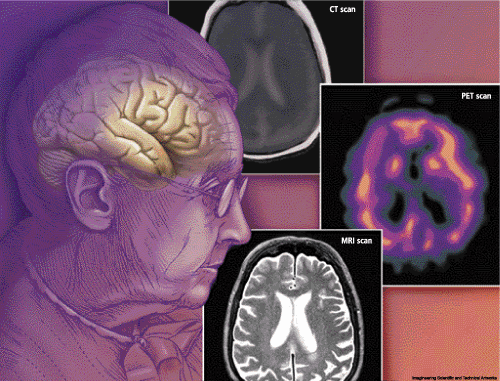What is dementia?
Dementia is a term that is used to describe a group of disorders that impair intellectual function and interfere with a person’s ability to perform normal activities. People with dementia will gradually begin to lose control of their ability to think and reason. They may also have difficulty in controlling their behaviour.
Forgetfulness is one of the signs of early Dementia. Language problems, misplacing items and personality changes are some of the other probable symptoms of this condition. As this condition progresses, a patient will experience more severe symptoms, such as hallucinations and violent behaviour. Patients with severe dementia will begin to lose their ability to perform basic activities of daily living, such as bathing and dressing.

I am a young, single professional. Why should I be concerned about Dementia?
Dementia is usually diagnosed in patients who are over the age of 65. However, studies have shown that this condition is becoming increasingly common in patients in their 30s and 40s. It is estimated that there are about 500,000 people living with Dementia who are under the age of 65.
Doctors do not know exactly why there are so many young people developing Dementia. However, studies have shown that there are certain medical conditions that make a person more susceptible to developing this condition. Multiple sclerosis, Parkinson’s disease and HIV/AIDS are just a few of the many diseases that can increase a person’s risk of developing dementia. Additionally, lifestyle choices, such as excessive drinking and the use of certain medications can also lead to dementia.
People who develop Dementia at a young face the same risk of complications as older patients. Increased infections, impaired ability to take care of oneself and loss of ability to interact with others are some of the most common side effects of Dementia. Additionally, young Dementia patients may also have a reduced lifespan.
What are some of the treatment options for Dementia?
Currently, there is no cure for Dementia. Doctors usually focus on alleviating the patient’s symptoms and slowing the progression of the disease. They may prescribe methylphenidate, which is a stimulant medication. A doctor may also prescribe a mood stimulant or antipsychotic drug. All of these medications are extremely effective, but they often come with unpleasant side effects. Cognitive-behaviour therapy, which is typically prescribed to treat psychological disorders, is not effective for treating this condition. It can cause the patient to become more confused.
Can early-onset Dementia be prevented?
Because doctors do not fully understand the causes of early onset Dementia, there is nothing that can be done to prevent it. However, there are things that people can do to reduce their risk of developing it. Excessive alcohol intake should be avoided because it can increase a person’s risk of developing Dementia.
People with high blood pressure and diabetes should make sure that they follow their doctor’s advice so that they can get their condition under control. Those conditions are also considered risk factors for Dementia.
There has also been evidence to suggest that a low-fat diet and exercise can protect against Dementia. Eating lots of fruits, whole grains and vegetables while limiting the intake of fried and processed foods are the keys to following a low-fat diet. A person should try to exercise for at least 30 minutes each day five days out of the week.
My name is Nisha, I represent MHA care homes http://www.mha.org.uk – I like to write about elderly care and families, feel free to visit our site for more information on care homes in Southampton, Wales and Bristol.

